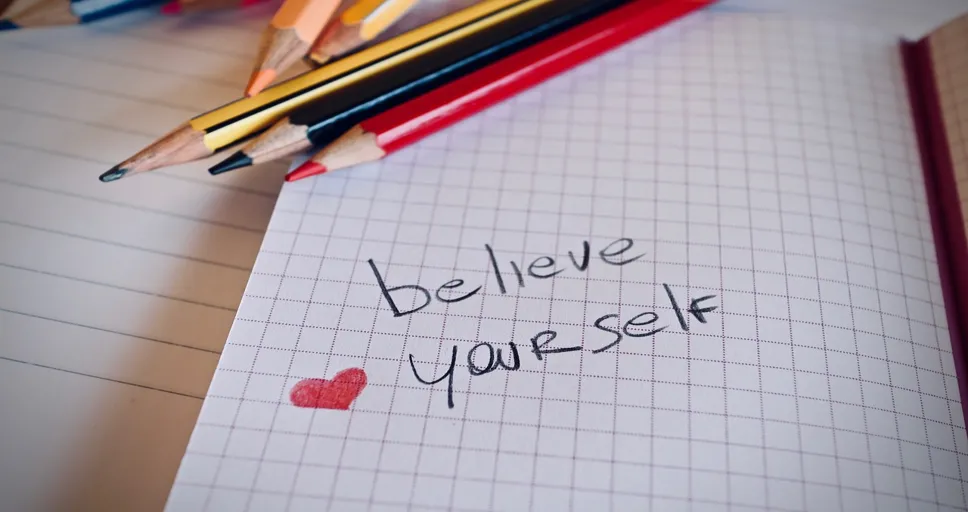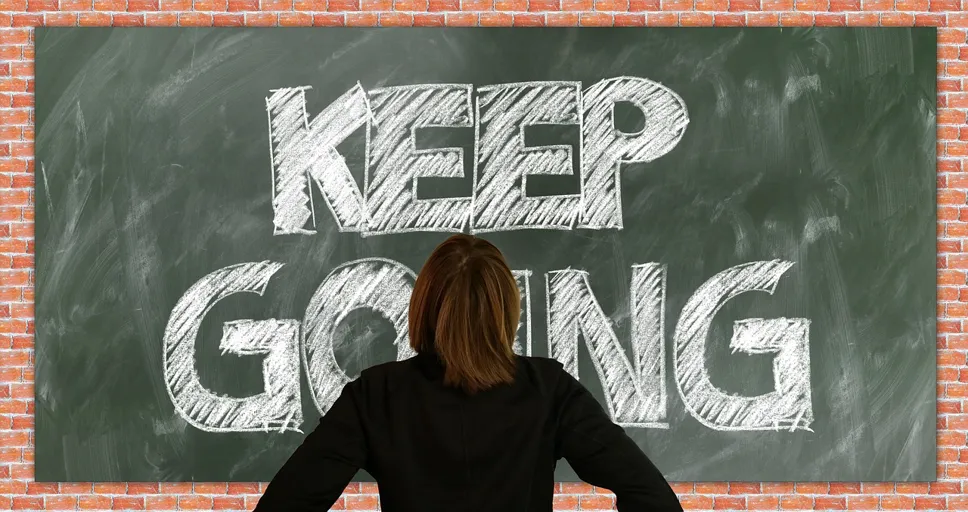When someone makes you feel like a burden, it’s like being handed a backpack filled with bricks and told, “Don’t drop it.” The emotional weight of that moment is heavy, awkward, and frankly, a bit ridiculous. Suddenly, you’re questioning your existence: Am I asking for too much? Am I too much? And before you know it, you’re spiraling into a rabbit hole of self-doubt.
The truth is, feeling like a burden often strikes at the heart of our deepest insecurities. It’s not just about the comment someone made or the vibe they gave off; it’s about how that lands in the part of your brain that’s still trying to impress your middle school crush. (Yes, we all have that part.) It taps into the fear of being unworthy, unloved, or simply too much for the people around us.
But here’s the thing: emotions are tricky little gremlins. They like to exaggerate and make you think that one person’s bad day—or careless words—define your entire worth. Spoiler: they don’t. The impact is real, but it’s also temporary, as long as you don’t let it set up a permanent residence in your head. Recognize the feeling, sit with it, and then kindly show it the door.
- Recognize when self-doubt arises and challenge negative self-talk.
- List your strengths to remind yourself of your value.
- Set boundaries to avoid absorbing others’ stress or guilt.
- Surround yourself with supportive, uplifting people.
- Embrace your “main character energy”—own your space confidently.
- Remember, your worth isn’t defined by someone’s bad day or careless words.
Table of Contents
- 1 What It Means When Someone Makes You Feel Like a Burden
- 2 Steps to Reclaim Your Confidence and Self-Worth
- 3 How to Address the Situation with Compassion and Clarity
- 4 DO YOU FEEL LIKE A BURDEN? #childhoodtrauma #parentingtips #narcissist #narcissism #trauma
- 5 Frequently Asked Questions
- 6 Embracing Your Value and Moving Forward
What It Means When Someone Makes You Feel Like a Burden

When someone makes you feel like a burden, it’s not just about the words they say—it’s about how those words make your brain scream, “Wow, I guess I’m officially too much now.” Feeling this way can mean a few things, and spoiler alert: none of them actually define your worth as a human being. Still, it’s worth unpacking why this feeling hits so hard.
First, let’s acknowledge the unspoken rulebook of relationships, which most people seem to misplace somewhere between kindergarten and adulthood. Ideally, relationships—whether friendships, family, or romantic—are supposed to feel like a two-way street. But when someone implies you’re a burden, it’s like they’ve closed off their lane, slapped a “Road Closed” sign on it, and left you stuck on the shoulder with a flat tire. It feels unfair, isolating, and honestly, a little like being ghosted by your emotional support system.
This feeling often points to a deeper issue, either with the other person or within yourself. On their end, it might reflect their own limitations—maybe they’re overwhelmed or don’t know how to set boundaries in a kind way. On your end, it might poke at insecurities you didn’t even know were hosting a party in your brain. Suddenly, the “I’m not enough” and “I’m too much” voices start doing a duet, and let’s be honest, it’s a terrible song.
But what does it really mean? It means someone else’s actions have collided with your emotional soft spots. It means you’ve internalized a moment that might not even be about you. And most importantly, it means you care—about how you’re perceived, about the people in your life, about not being a bother. That’s not a flaw; that’s human.
So, next time someone makes you feel like a burden, pause for a second. Consider what’s really happening. Are they projecting their own stress onto you? Are you reading too much into a moment because you value their opinion? Whatever the case, don’t let this feeling camp out in your heart rent-free. Its lease is up the moment you decide you’re worthy of love and care—because spoiler: you absolutely are.
Steps to Reclaim Your Confidence and Self-Worth
Reclaiming your confidence and self-worth after feeling like, well, too much for someone else is no small task. But the good news? It’s absolutely possible. When someone makes you feel like a burden, the key is to remind yourself that your value isn’t determined by anyone’s bad day, misplaced tone, or lack of emotional bandwidth. Here’s how to take back your power.
1. Call Out the Negative Narrator in Your Head
First things first: recognize that your inner monologue might be lying to you. You know, that voice whispering, “You’re asking for too much” or “You’re a bother.” That voice? It’s like a bad friend at a sleepover—dramatic and unnecessarily mean. Challenge those thoughts by asking, “Would I talk to a friend this way?” No? Then don’t talk to yourself like that either.
2. Focus on What You Bring to the Table
Make a list of all the amazing things about you—yes, a literal list. Are you a good listener? Hilarious in group chats? A master of finding the perfect memes? Whatever it is, write it down. When someone makes you feel like a burden, it’s easy to forget your strengths. Your list is a reminder that you’re not only enough—you’re pretty darn awesome.
3. Set Emotional Boundaries Like a Pro
Sometimes, the problem isn’t you; it’s that other people are throwing their baggage at you like it’s dodgeball. Learn to recognize when you’re absorbing other people’s stress or guilt and remind yourself that it’s okay to say, “This isn’t mine to carry.” Protecting your energy isn’t selfish—it’s survival.
4. Surround Yourself with the Right People
Confidence grows in the right environment. Spend time with people who make you feel like a VIP, not an inconvenience. The ones who light up when you walk in the room, laugh at your jokes, and are genuinely glad you exist. Their energy will remind you of your worth, no pep talk required.
5. Practice a Little “Main Character Energy”
Whenever self-doubt creeps in, channel your inner movie star. Picture yourself strutting down the street to a killer soundtrack. You’re the protagonist of your life, and protagonists don’t apologize for taking up space—they own it.
Remember, confidence and self-worth aren’t about never doubting yourself. They’re about reminding yourself, over and over, that your value isn’t up for debate. And if someone can’t see that? Well, that’s their problem, not yours.
How to Address the Situation with Compassion and Clarity

When someone makes you feel like a burden, the temptation to either cry in the shower or start a dramatic, Oscar-worthy confrontation can be very real. But there’s a middle ground—a way to handle things with compassion for both yourself and the other person. Spoiler alert: it’s not about proving you’re not a burden; it’s about opening up space for understanding.
1. Start with a Deep Breath (or Ten)
Before diving into the conversation, give yourself a moment. Feeling hurt can crank your emotional volume to eleven, and while that’s totally valid, starting a dialogue when you’re on the verge of yelling “HOW COULD YOU?!” probably won’t lead to clarity. Take a beat, let the feelings settle, and remind yourself why this conversation matters.
2. Use “I” Statements Like a Pro
“I feel like a burden” hits differently than “You make me feel like a burden.” One invites dialogue; the other sounds like an accusation and might send the other person into defensive mode. Frame your feelings with “I” statements, like, “I’ve been feeling like I’m asking for too much lately, and it’s been tough to shake.” It’s honest, disarming, and puts the focus on your experience rather than blaming.
3. Get Curious, Not Combative
Sometimes, when someone makes you feel like a burden, they’re not even aware they’ve done it. Maybe their sigh after you asked for help was about their workload, not you. So, ask questions: “Have I been leaning on you too much lately?” or “Is there something you need from me in this situation?” Curiosity opens doors; assumptions slam them shut.
4. Set Boundaries with Love
If the person’s behavior has genuinely crossed a line, it’s okay to set boundaries. The trick? Do it with kindness. Instead of, “You’re making me feel awful,” try, “I need to feel supported, and I’d love it if we could work on communicating more openly.” It’s firm but empathetic—a winning combo.
5. Know When to Walk Away
Not every conversation will lead to hugs and harmony. If someone continues to dismiss your feelings or doubles down on making you feel small, it might be time to re-evaluate the relationship. Compassion includes compassion for yourself, too.
Addressing these situations isn’t about “fixing” anything—it’s about finding clarity and advocating for your worth. Because no matter how the conversation goes, your value remains the same: infinite.
- Feeling like a burden taps into deep insecurities but doesn’t define your worth.
- Recognize and challenge negative self-talk; it often lies to you.
- Focus on your strengths and set emotional boundaries to protect your energy.
- Surround yourself with supportive people who value you.
- Reclaim confidence by embracing your worth and channeling “main character energy.”
DO YOU FEEL LIKE A BURDEN? #childhoodtrauma #parentingtips #narcissist #narcissism #trauma
Frequently Asked Questions

What does it mean when someone says I feel like a burden in a romantic relationship?
It means they feel as though their needs or struggles are overwhelming their partner, creating a sense of guilt or insecurity about their place in the relationship.
What causes someone to make you feel like a burden in dating?
This feeling can arise when a partner is dismissive, lacks empathy, or when communication about mutual support and boundaries is ineffective or absent.
Embracing Your Value and Moving Forward
Let’s face it: when someone makes you feel like a burden, it’s easy to let that feeling stick to you like gum on your favorite shoes. But here’s the thing—you’re not defined by someone else’s moment of thoughtlessness or their inability to appreciate your worth. Embracing your value isn’t just a motivational Pinterest quote; it’s an active, ongoing choice to see yourself as the beautifully flawed, endlessly worthy human you are.
1. Stop Taking a Poll on Your Worth
Your value is not up for debate, and it definitely doesn’t need to be decided by a majority vote. Too often, we look for external validation to confirm we’re “enough,” whether from friends, family, or that random person who always likes your social media posts. Instead, practice validating yourself. Remind yourself of the things you love about you—your quick wit, your resilience, your ability to binge-watch an entire season in a day. You’re enough, period.
2. Rewrite the Script
When someone makes you feel like a burden, your brain might start writing its own tragic screenplay: “Maybe I’m too needy” or “I should stop asking for help.” Flip the narrative. Instead of seeing your needs as flaws, view them as a natural part of being human. Everyone has needs, even the people who make it seem like they’ve got it all together. Asking for support isn’t a weakness; it’s a strength.
3. Surround Yourself with Energy Builders
There are two kinds of people: those who drain your energy and those who refill your cup. Spend more time with the refillers—the ones who make you laugh until your stomach hurts, who listen without judgment, and who remind you that you’re worth showing up for. These are the people who help you remember your value without even trying.
4. Find Joy in the Small Things
Reconnecting with your value often starts with finding joy in the simplest moments. Dance in your kitchen, take a walk just to admire the sky, or treat yourself to that fancy coffee you always talk yourself out of. These small acts remind you that you’re worthy of care, even from yourself.
5. Keep Moving Forward
The truth is, not everyone will see your value—and that’s okay. What matters is that you see it. Moving forward doesn’t mean forgetting the hurt; it means carrying it lightly, like a lesson learned, and walking confidently into the next chapter of your life. Because at the end of the day, you’re not a burden. You’re a gift—quirks, needs, and all.



